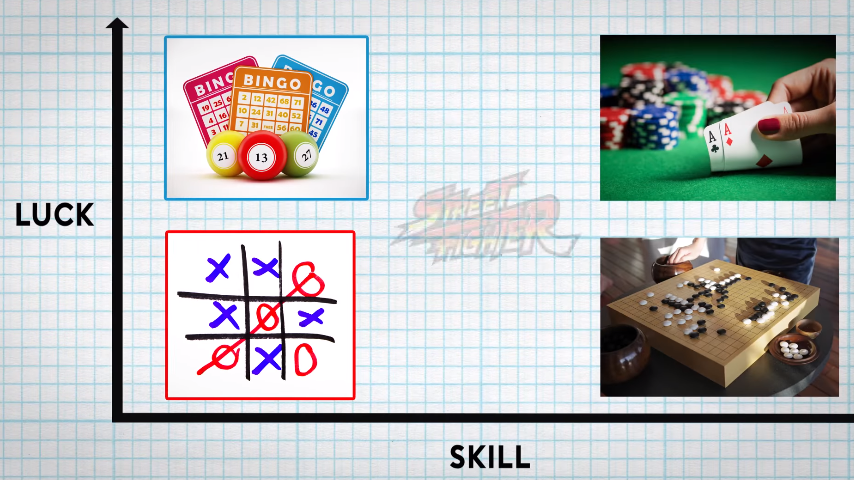so
RANDOMIZATION IN TTRPGs
I think a lot about:
- the Role of Randomization in Games
- D&D Without Dice
- Belonging Outside Belonging
RANDOMIZATION IN TTRPGs
I think a lot about:
- the Role of Randomization in Games
- D&D Without Dice
- Belonging Outside Belonging
We touch on what Luck does in games in The Consequences of Reducing the Skill Gap from Core-A Gaming
The idea that Luck protects Ego. It touches on the bigger scope, but this is more specific to competitive games. But we& #39;re going in the right direction. ">https://youtu.be/iSgA_nK_w...
The idea that Luck protects Ego. It touches on the bigger scope, but this is more specific to competitive games. But we& #39;re going in the right direction. ">https://youtu.be/iSgA_nK_w...
In Role Playing Games, they& #39;re more collaborative in nature BUT we& #39;re still pushing the arbitration onto randomization methods.
In these situations, we& #39;re still protecting player ego to a degree but if you have a GM we& #39;re removing creative burden.
In these situations, we& #39;re still protecting player ego to a degree but if you have a GM we& #39;re removing creative burden.
We see in Belonging Outside Belong (specifically I& #39;m only familiar with BALIKBAYAN) the randomization is COMPLETELY replaced with concrete options, collaborative creation, and resource management.
so what we& #39;re seeing here are different intersections of Luck and Skill
D&D 3.5 and Pathfinder require mastery of the game but still hinge on the d20
where BOB is more about what you& #39;re bringing to the table
D&D 3.5 and Pathfinder require mastery of the game but still hinge on the d20
where BOB is more about what you& #39;re bringing to the table
for RPGs, it& #39;s not necessarily about winning but making effective use of our time to engage the game and our friends.
In theory I think this is why a lot of D&D campaigns don& #39;t reach high levels. Sure there& #39;s character growth but the player& #39;s mastery of the game waters down.
In theory I think this is why a lot of D&D campaigns don& #39;t reach high levels. Sure there& #39;s character growth but the player& #39;s mastery of the game waters down.
on the other side I think there& #39;s plenty of room for long term BOB campaigns with the right group.
If we create space for player and GM knowledge to grow and for that knowledge to be engaged appropriately.
If we create space for player and GM knowledge to grow and for that knowledge to be engaged appropriately.
Being aware of not only how you implement randomization but why will give you a better idea of what your optimal player base will look like.
I think board games are getting a better grasp on this idea especially with more Legacy style games popping up.
I think board games are getting a better grasp on this idea especially with more Legacy style games popping up.

 Read on Twitter
Read on Twitter


